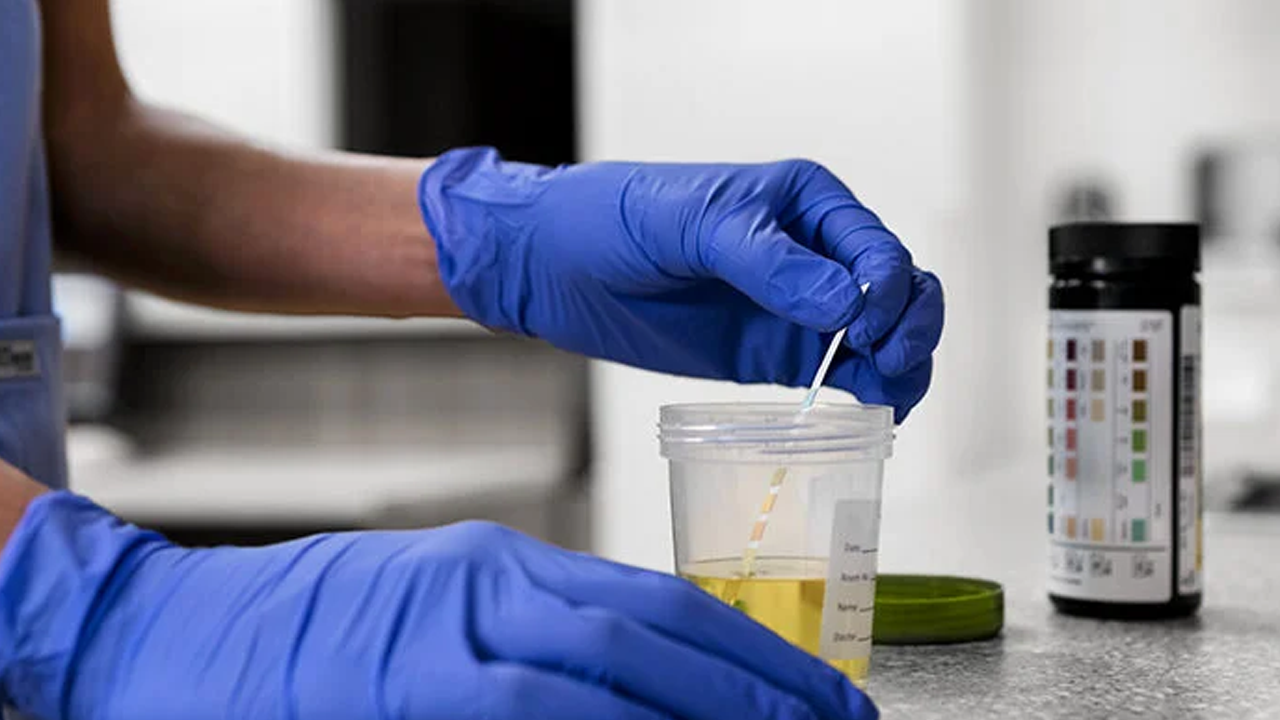Latest Update How Long Does Marijuana Stay in Urine: 2023

In a world where marijuana’s legal status is shifting, it’s essential to know how long the herb can linger in your urine. Whether you’re a seasoned user or just curious about the effects of cannabis on drug tests, this article will break down the latest information on “how long does marijuana stay in urine.” We’ll explore the science behind it, methods of detection, and provide answers to frequently asked questions to help you stay informed. So, let’s dive in!
Explore the Contents
- 1 Understanding Marijuana Metabolism
- 2 Detecting THC in Urine Tests
- 3 Factors Influencing Detection Times
- 4 Types of Drug Tests and Detection Windows
- 5 Occasional Users vs. Regular Users
- 6 Short-Term vs. Long-Term Effects
- 7 Clearing THC from Your System
- 8 Myth Busters: Detox Products
- 9 Legal Implications and Workplace Testing
- 10 2023 Update: Changing Laws
- 11 FAQs: How Long Does Marijuana Stay in Urine
- 12 Conclusion: Staying Informed in 2023
Understanding Marijuana Metabolism
If you want to know how long does marijuana stay in urine, you need to know how it works metabolically. The main psychoactive ingredient in marijuana, tetrahydrocannabinol (THC), enters your bloodstream when you smoke, vape, or eat marijuana. This starts a complex metabolic process. During this process, THC changes into different molecules. The most important molecule that is tested for drugs is THC-COOH, which is made when your body naturally breaks down THC.

In simple words, your body breaks down THC into THC-COOH, which is then flushed out of your body through urine and is what drug tests look for.
The half-life of THC-COOH is an important idea to understand when trying to figure out how weed works. Half-life is the amount of time it takes for half of a drug to leave the body. It is thought that THC-COOH has a half-life of about 3 to 4 days.
In other words, it takes 3 to 4 days for the amount of THC-COOH in your body to drop by half after you use weed. Importantly, this doesn’t mean that the drug is completely gone; it will keep going down by half every few days until normal drug tests can’t find it anymore. Regular users may need longer to get to this point than occasional users, who might get there in about a week.
Another interesting thing about how marijuana works is that it is stored in fat cells. The chemicals that break down THC are lipophilic, which means they like fat molecules. As a result, they are often stored in fat cells, which has a big effect on how long marijuana stays in the body.

As time goes on, these fat cells slowly release THC-COOH back into the system. This is why, based on the person’s body fat percentage, marijuana can stay in the urine for days or weeks after just one use.
Different people also break down and get rid of THC-COOH at different rates. Because there is more fat to store, a higher body fat percentage can make THC-COOH detection last longer. People with smaller body fat percentages, on the other hand, tend to process and get rid of it more quickly.
Also, a person’s digestion is very important. If your metabolism is faster, your body can process and get rid of THC-COOH more quickly, which shortens the detection window.
If, on the other hand, your digestion is slower, THC-COOH may stay in your system for longer. Finally, the length of time it takes to be detected can be affected by how strong the weed used was. Stronger strains with more THC may take longer to identify because there is more THC to break down.

In the end, knowing how marijuana works in the body goes beyond knowing how it makes you feel right away. Metabolite tests look for substances that are made during metabolism.
These substances can stay in the body for days or even weeks, based on a number of factors. People who may have to take a drug test or who want to make smart choices about marijuana use need to know this information.
Detecting THC in Urine Tests
How tetrahydrocannabinol (THC) is found in urine tests is a key part of figuring out how long weed can be found in the body. Many places of work and schools use urinalysis, which is short for urine test, to check for drug use. The way these tests work is by looking for

THC metabolites in a person’s pee, mostly THC-COOH. Different tests have different sensitivity levels, which affects the detecting window. This means that some tests are more likely to find THC metabolites in people who only use cannabis occasionally.
A pee test is the best way to find out if THC metabolites are still in your system, whether you’ve recently used marijuana or have been using it for a long time.
Factors Influencing Detection Times
The duration THC stays in your urine varies from person to person. Several factors impact this, including:
- Frequency of Use: Regular users tend to retain THC in their system longer.
- Body Fat Percentage: THC is stored in fat cells, so individuals with more fat may eliminate it more slowly.
- Metabolism: A faster metabolism can help clear THC more quickly.
- Cannabis Potency: Stronger strains might lead to a longer detection time.
The duration THC metabolites, notably THC-COOH, stay detectable in urine is subject to several influencing factors. First and foremost, the frequency of marijuana use plays a pivotal role, with regular users experiencing a prolonged detection window compared to occasional users.
Body fat percentage is another significant factor, as THC and its metabolites are stored in fat cells, meaning individuals with higher body fat percentages may eliminate them more slowly.
Metabolism speed also comes into play, with a faster metabolism facilitating swifter clearance of THC metabolites. Lastly, the potency of the marijuana consumed can extend the detection time, as stronger strains contain more THC for the body to metabolize. Understanding these factors is key to predicting the duration of THC detection in urine tests.

Types of Drug Tests and Detection Windows
Different drug tests have varying detection windows:
- Urine Test: Up to 30 days for regular users, shorter for occasional users.
- Blood Test: Detects recent use, usually within hours to a few days.
- Hair Test: The most extended detection window, up to 90 days.
- Saliva Test: Detects recent use, generally up to 1-3 days.
Occasional Users vs. Regular Users
Occasional users have an advantage when it comes to drug tests. Their systems tend to clear THC more rapidly, with a detection window of a few days to a week. Regular users, on the other hand, may need up to 30 days to test clean.
Short-Term vs. Long-Term Effects
While urine tests can detect THC long after the high wears off, it’s important to distinguish between short-term effects and long-term consequences. The euphoria from cannabis is relatively short-lived, but traces can remain in your urine for weeks.
Clearing THC from Your System
If you’re aiming to speed up the process, staying hydrated and engaging in regular physical activity can help. However, there’s no surefire way to eliminate THC quickly, and detox products don’t guarantee success.
Myth Busters: Detox Products
Detox products claim to flush THC from your system, but their effectiveness is often debated. These products can be expensive and may not yield the desired results. It’s crucial to approach them with caution.
Legal Implications and Workplace Testing
Understanding the legal implications of marijuana use is vital. Even in regions where it’s legalized, employers may conduct workplace drug tests. It’s essential to be aware of your workplace’s policy regarding marijuana use.
2023 Update: Changing Laws
As of 2023, marijuana laws are rapidly evolving worldwide. Some regions have decriminalized or legalized recreational use, while others maintain strict regulations. Staying informed about these changes is crucial to understand your rights and responsibilities.
Read More: Does CBD Test Positive for Drugs?
FAQs: How Long Does Marijuana Stay in Urine
How long does marijuana stay in urine for occasional users?
For occasional users, marijuana can be detected in urine for approximately 3 to 7 days after use. However, individual factors may influence this duration.
Can drinking lots of water help clear THC from urine?
Hydration can dilute urine and temporarily reduce THC concentration, but it won’t eliminate metabolites. Don’t rely solely on this method for passing a drug test.
Do detox drinks guarantee a clean drug test?
Detox drinks aren’t foolproof. While some people claim success, results can vary, and there’s no one-size-fits-all solution.
What are the legal consequences of failing a drug test due to marijuana use?
Legal consequences depend on your location and workplace policies. Failing a drug test could result in job loss or legal repercussions in some cases.
How can I stay updated on changing marijuana laws in my area?
To stay informed about marijuana laws, regularly check your local government’s website, consult legal resources, and follow news outlets reporting on cannabis-related legislation.
Conclusion: Staying Informed in 2023
In 2023, the landscape of marijuana use and detection is rapidly changing. Understanding how long marijuana stays in urine is not just about passing a drug test; it’s about knowing your rights, responsibilities, and the evolving legal framework. So, stay informed, make responsible choices, and remember that your actions today can impact your future.





